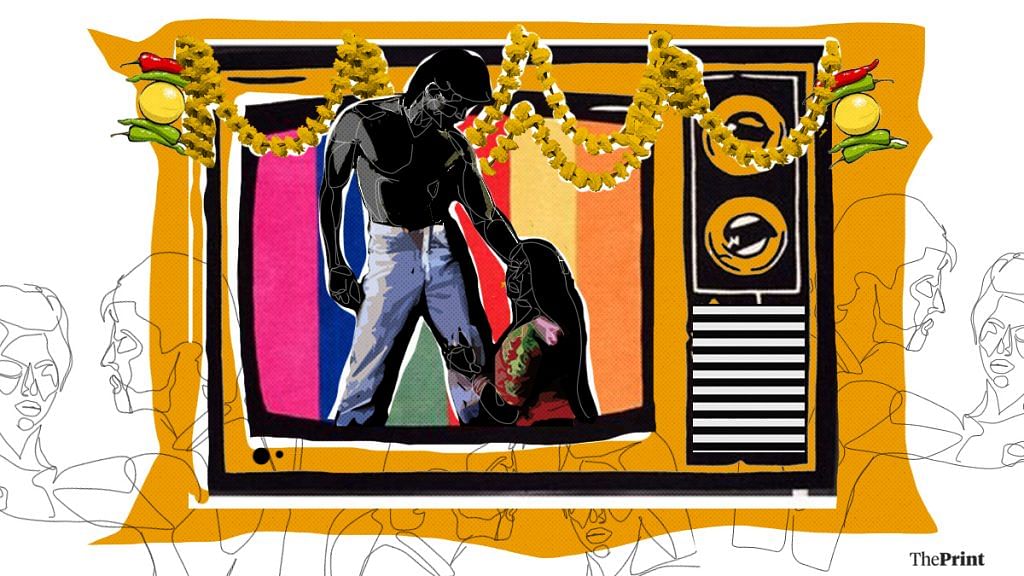HBO Max pulled down a Hollywood classic Gone With The Wind as racial tensions reached an all-time high following the killing of George Floyd in Minneapolis on 25 May. As Many Twitter users have expressed outrage over HBO’s move, but honestly — this was long overdue.
Not just because the 1939 film featured skewed, white-washed representation of African-Americans during the Civil War, or its romanticisation of the slavery-ridden Antbellum South, but because the film even contains a marital rape scene everyone seems to have forgotten about.
HBO has stated that the movie will come back to its library of films, supported with a discussion of its historical context and a denouncement of those very depictions”. But those critical of the film being pulled down argue that it made Hattie McDaniel the first black actor to win an Oscar for her role as Mammy. The reality is that McDaniel was not even allowed to sit next to her White co-stars during the Oscar ceremony due to racial segregation. That’s not the only tragedy — the National Association for the Advancement of Colored People disowned her for playing a role they felt perpetuated negative stereotypes about Black people, her Oscar was dismissed as “valueless”, and then subsequently the statue went missing.
Also read: Picture abhi patriarchy hai: Studying Bollywood’s sexism disease
Many SRK films
But in the same vein of looking at classics that have not aged well, we must shift focus to India’s successful but tone-deaf films that need to be taken down. Karan Johar’s blockbuster directorial debut Kuch Kuch Hota Hai, and the problematic ideals it promotes of an “attractive woman” and femininity, deserves an honorary mention in this list.
The Shah Rukh Khan-Manisha Koirala starrer Dil Se has become a cult over the past two decades. But it’s storyline is just as deeply etched in my memory as AR Rehman’s ‘Jiya Jale’, and not for the best reasons. When I rewatched that movie as a 23- year-old, thanks to the lockdown, I could not stop cringing. Khan’s character, Amarkanth Varma, fails to understand what ‘no’ means, with Koirala’s character being anything but ambiguous about her feelings towards him. Fun fact: this film was released in 1998, the same year Deepa Mehta came out with Fire — a pathbreaking film that addressed homosexuality in the most nuanced manner possible.
Homosexuality may no longer be illegal, but Bollywood’s representation of it needs to be. What began as a funny little segment in Nikhil Advani’s Kal Ho Na Ho of Kanta Ben freaking out watching two men in bed together (problematic nonetheless), snowballed into another Dharma Productions nightmare — Dostana. The film caricatured homosexuality, and while some argue that it brought the LGBTQ conversation to the forefront, maybe the filmmakers could have taken a cue from Deepa Mehta, Shonali Bose or Zoya Akhtar instead.
Blackface — Souten to Bala
The blackface controversy may have gained momentum after an embarrassing image of Canadian Prime Minister Justin Trudeau from an Arabian Nights party in 2001 emerged, but Bollywood is just as guilty. Saawan Kumar Tak’s 1983 film Souten featured Shreeram Lagoo sporting blackface to underline the fact that he was playing a Dalit character, Sunny Deol starrer Ghatak (1996) featured an entire song sequence with backup dancers in blackface. More recently Bhumi Pednekar appeared in brownface in Bala — was there really not a single dusky-skinned actress in India who could have played that role, instead of offensively putting makeup on Pedhnekar? And while we are at it, completely drop the song ‘Chittiyaan Kalaiyaan’.
Also read: Bala’s bald patch is beautiful but its brown-faced hypocrisy can’t be ignored
Zero idea of consent
Then there was the horrid Hum Aapke Hain Koun — in what world is it okay to force a woman to marry anyone, let alone her dead sister’s husband? In the end, it’s an annoying Indian Spitz that saves Madhuri Dixit’s character from a loveless marriage. I have so many questions, the biggest one being — how did this movie make Rs 200 crore worldwide for showing that any woman can be used as compensation for a dead wife or motherless child. Another fun fact: This Sooraj Barjatya film released in 1994, the same year Shekhar Kapur’s powerful biopic Bandit Queen, based on the life of Phoolan Devi, hit theatres and that is what the censor board chose to ban.
Dhanush’s superhit Raanjhanaa caused a furore because of its glorification of stalking in the name of love. Even actor Swara Bhaskar, who plays the lead’s best friend, admitted to this. Another example of how men fail to grasp the concept of a clear, unambiguous ‘no’. The ignorance and dafteness of making a movie like this in India, which records a case of stalking every 55 minutes, is baffling.
Given that HBO’s decision to pull down Gone With The Wind is temporary, I am not against it. Such a welcome step must be practiced in India as well. Recognition, admission and denouncement of problematic films is the need of the hour, especially in Bollywood.
Views are personal.
Also read: 5 Bollywood movies that should not have been made this decade
